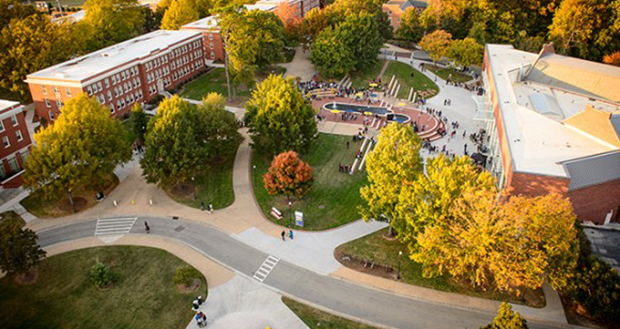There are almost a billion reasons UNCG is essential to the Triad economy. $988.6 million to be exact.
The first-ever statewide study documenting the economic impact of North Carolina’s higher education institutions was released last week, Chancellor Linda P. Brady told the UNCG Board of Trustees Feb. 19. For students, for society and for taxpayers, UNCG provides an impressive return on investment.
The analysis shows that in academic year 2012-13, the $375.3 million in payroll and operations spending of UNCG, together with its construction spending and the spending of its students, visitors, alumni and start-up companies, created $988.6 million in added regional income.
That’s equal to approximately 1.3 percent of the total gross regional product of the Triad region and is equivalent to creating 16,152 jobs.
The economic impact study was conducted by Economic Modeling Specialists International.
Students attending UNCG during 2012-13 paid a total of $110.2 million to cover the cost of tuition, fees, books and supplies. They also forewent $285.3 million in money they would have earned had they been working instead of learning. In return for the money students invest to earn their degrees, they will receive a present value of $1.3 billion in estimated increased earnings over their working lives. This translates to a return of $3.20 in higher future income for every $1 that students invest in their UNCG education. The average annual return on investment for students is 13.3 percent.
The return on investment can be considered from other perspectives as well. For society? For every dollar that society spent on educations at UNCG during the analysis year, communities will receive a cumulative value of $11.20 in benefits, for as long as the 2012-13 students of UNCG remain active in the state workforce.
For taxpayers? In that year, state and local taxpayers invested $181.5 million to support operations of UNCG. The study found that the average annual return on investment for taxpayers is 12.4 percent.
This results of this study speak to the importance of continuing to invest in higher education, Brady noted.
Reposted from UNCG News and Features
